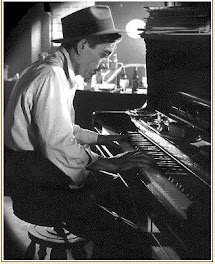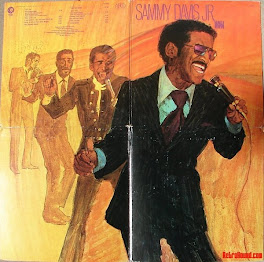When you 'do' poetry, it's a matter of writing and reading and reciting aloud, too.
When you 'do' poetry in writing, that means you produce it or you write about others.
Being an analyst or critic -- even an appreciator commenting a bit -- carries risks.
For one, there's seldom full agreement on anything, in no small measure because it's hard to establish anything worth saying that doesn't involve weighing subtleties or taste. A casual position you take may deeply offend either the writer or another reader.
It may put you in a world of polemics radically far from the poetry itself. Academic departments and personal reputations stake out territory. Even outside the professional area, egos always hang in the balance.
Another risk is being flatly wrong. Misreadings happen. Things fly far over one's head, sometimes, and observers evaluate analysts as well as poets. It's your dignity lost, you goof!
With that as minimal preface and humble, innoculating defense, let me catch a bit of Emily Dickinson's #419 We grow accustomed to the Dark.
Into the poem, she ends:
And so of larger -- Darknesses --
Those Evenings of the Brain --
When not a Moon disclose a sign --
Or Star -- come out --within --
The Bravest -- grope a little --
And sometimes hit a Tree
Directly in the Forehead --
But as they learn to see --
Either the Darkness alters --
Or something in the sight
Adjusts itself to Midnight --
And Life steps almost straight.
Are we dealing with contemplative seriousness or depression? Are we solving a metaphysical problem or coming to grips with ailment? Not sure there's a solution given the word 'almost'.
Right. We can adjust, we can learn anew. But 'darkness' isn't handled, necessarily, isn't finished-off or tamed. When we think so, we may just be convincing ourselves that it's changed when in actuality we've changed.
Maybe without fully admitting any of that.
.







































Excellent, thought provoking post. I raise my cup of tea to the Brave. May they not hit the tree so hard that it kills them.
ReplyDeletewhen you write poetry, you don't mind danger because your heart is yet bloody, doesn't it?
ReplyDeleteWillow,
ReplyDeleteThanks -- haven't done one such as this in a while. To the brave, for sure, not to hit a tree at all. But they still may have to contend with the dark, a dialectic both soulful and soilful?
TFool
orfeenix,
ReplyDeleteWhen I do danger, I don't mind my blood, because the heart yet writes.
Truly, Fool
Great reading of this poem.
ReplyDeleteAre there really misreadings when it comes to poetry?
For me the message in here is one of hope, a praise of human resilience. After the bump, either evening darkness naturally gives way to morning light or it doesn't. It if doesn't, one grows accustomed to darkness and in a process of mutual transformation darkness becomes the new light. Either way, life goes on.
When you analyze poetry (and I don't mean you, of course, I mean one, anyone), you must first kill it. Then you can examine the individual organs.
ReplyDeleteIf the poet agreed with the analyst, he or she would be an analyst and not a poet.
Claudia,
ReplyDeleteThere are misreadings of poems. If someone, for instance, 'interpreted' the Dickinson above to be dealing with the physical readjustment after a brain surgery. That would be a stretch, serving an outside need.
Your reading makes sense and has an optimistic buoyancy. I'll buy into it.
TFool
Karin,
ReplyDeleteI'm too squeamish to do the killing myself. I pay assassins, then scavenge around.
I know what you mean about the distinct difference between writing a poem and coming at it as an outsider trying to understand it. Two very distinct processes.
The poetic one, for me at least, is -- yes, a fair amount of 'study' and 'training' -- largely 'feel'. What seems 'right'?
When I try being too deliberately clear, I seem to lose the magic. When I get besotted with the magic , I lose intelligibility.
I (and others) err often one way or the other.
TFool
Maybe because I was an english major (and not a particularly special one), I found some things dead on the cutting room floor. And you know what, maybe that's just me. Maybe taking something apart gives the whole a whole new life. Not for me, but for someone not like me. For someone who, well, I'm not sure, finds something wonderous, but finds it more wonderful to wonder about the wonderous thing they found, if it's in pieces.
ReplyDeleteKarin,
ReplyDeleteIn my "Adventures In English-Majoring", I came across all types, not a few who relished the analysis for its own sake, particularly those who liked to 'apply' particular ideological approaches (many to choose, right?) to vindicate the ideology. That was anathema to me.
A certain amount of what-makes-this-tick did help me. It allowed me some vocabulary, some planes of comparison among pieces I did or didn't like. Sometimes the close look opened my eyes.
Wonder, surprise, something going where you didn't think anyone did -- yes. We've got our picks there. I gained a bit discerning those from . . . pseudo-wonder: poems that have learned to push response buttons.
And. My memories include whole mansions of cutting rooms.
Trulyfool
(the guy who sat behind you two rows and started nervously humming when Augustan literature got focus.)